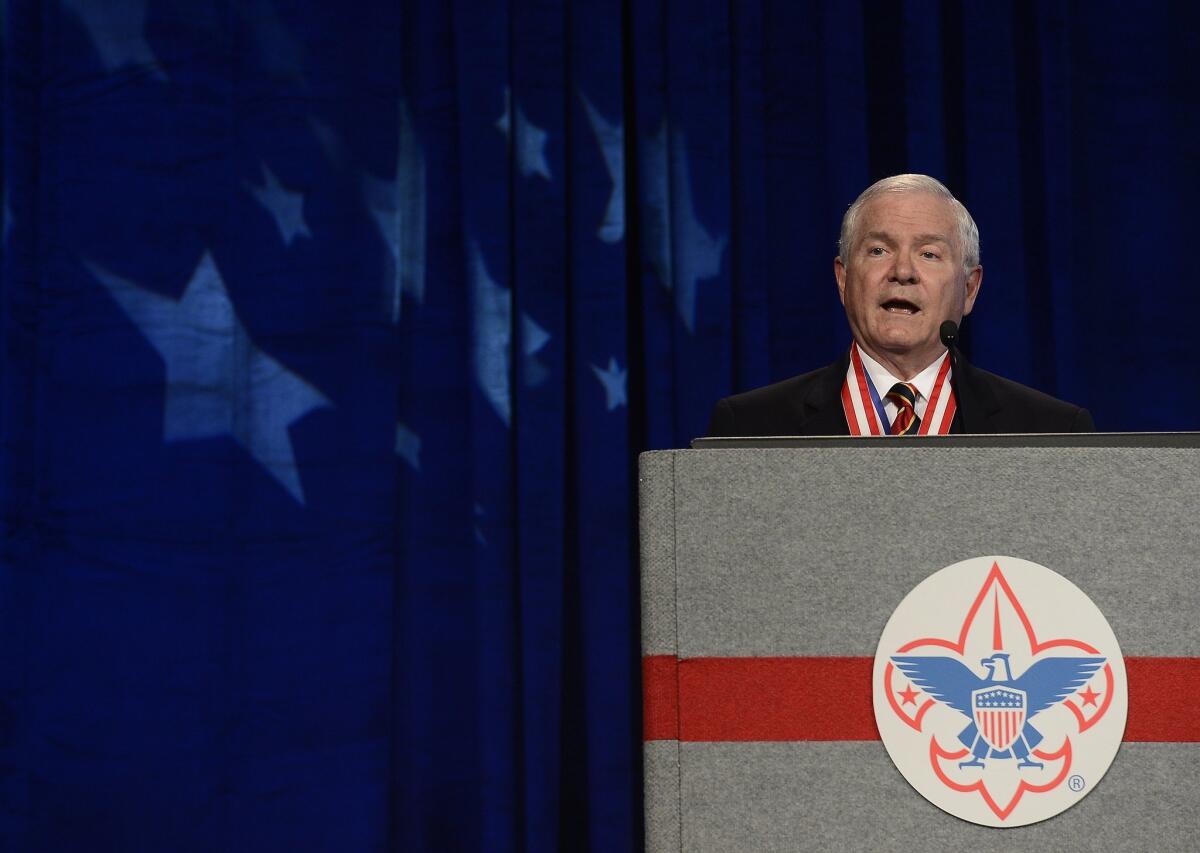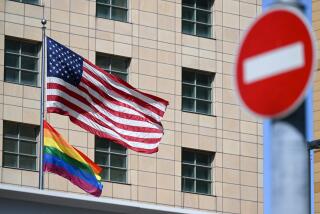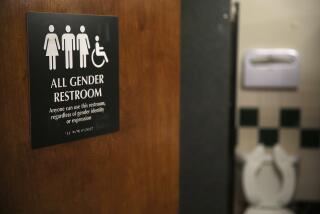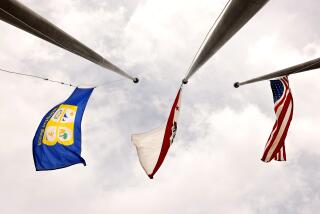Excerpts from Robert Gates’ remarks on Boy Scouts’ ban on gay leaders

Former Defense Secretary Robert Gates addresses the
Two years after a tumultuous and emotional battle inside the Boy Scouts of America that ended with a vote to allow gay youths to join but banned gay Scout leaders, the organization’s president, Robert M. Gates, on Thursday urged the group to end its national prohibition on gay leaders. Here are excerpts from his remarks:
I told you a year ago that I would oppose reopening this issue during my two-year term as president of the BSA. I had hoped then for a respite during which we could focus on healing our divisions from the 2013 decision, improving our program, strengthening our finances and ending our decline in membership.
However, events during the past year have confronted us with urgent challenges I did not foresee and which we cannot ignore. We cannot ignore growing internal challenges to our current membership policy, from some councils – like the Greater New York Council, the Denver Area Council, and others – in open defiance of the policy, to more and more councils taking a position in their mission statements and public documents contrary to national policy.
Nor can we ignore the social, political and juridicial changes taking place in our country – changes taking place at a pace over this past year no one anticipated. I remind you of the recent debates we have seen in places like Indiana and Arkansas over discrimination based on sexual orientation, not to mention the impending U.S. Supreme court decision this summer on gay marriage.
I am not asking the national board for any action to change our current policy at this meeting. But I must speak as plainly and bluntly to you as I spoke to presidents when I was director of CIA and Secretary of Defense.
We must deal with the world as it is, not as we might wish it to be. The status quo in our movement’s membership standards cannot be sustained. We can expect more councils to openly challenge the current policy. While technically we have the authority to revoke their charters, such an action would deny the lifelong benefits of scouting to hundreds of thousands of boys and young men today and vastly more in the future. I will not take that path.
Moreover, dozens of states – from New York to Utah – are passing laws that protect employment rights on the basis of sexual orientation. Thus, between internal challenges and potential legal conflicts, the BSA finds itself in an unsustainable position. A position that makes us vulnerable to the possibility the courts simply will order us at some point to change our membership policy. We must all understand that this probably will happen sooner rather than later.
In 2010, a federal district judge in California overturned the military’s Don’t Ask, Don’t Tell and the reversal was applied nationwide immediately. Only a stay granted by the appeals court – granted, I believe, mainly because we were in the process of changing the law – prevented dramatic disruption in the armed forces. We cannot predict if or when this might happen to us, but I personally believe our legal defenses have weakened since the dale case. And if we wait for the courts to act, we could end up with a broad ruling that could forbid any kind of membership standard, including our foundational belief in our duty to God and our focus on serving the specific needs of boys.
Waiting for the courts is a gamble with huge stakes. Alternatively, we can move at some future date – but sooner rather than later – to seize control of our own future, set our own course and change our policy in order to allow charter partners – unit sponsoring organizations – to determine the standards for their scout leaders. Such an approach would allow all churches, which sponsor some 70% of our scout units, to establish leadership standards consistent with their faith.
We must, at all costs, preserve the religious freedom of our church partners to do this. Our oath calls upon us to do our duty to God and our country. The country is changing and we are increasingly at odds with the legal landscape at both the state and federal levels. And, as a movement, we find ourselves with a policy more than a few of our church sponsors reject – thus placing scouting between a boy and his church.
The challenges are before us now. The executive committee, the national executive board and our legal counsel will work to determine our responses and our best strategy. We want and value your thoughts on all this, recognizing the importance of protecting our core values. The one thing we cannot do is put our heads in the sand and pretend this challenge will go away or abate. Quite the opposite is happening.
I know my remarks on this subject unsettle many of you. Some of you might be angry that I raise this subject and with what I have said. But this movement shaped my life and my only purpose – my only reason for assuming this leadership role – is to preserve the Boy Scouts of America in recognition of all it has done for this country, and all it can and must do in the future. Scouting is needed in this country now more than ever. I assure you that I have no hidden agenda. I want only to apprise you of the new reality I see: that both internal and external events and pressures over the past year and looking to the future will require action at some point.
For now, I ask that, in the days and months ahead, everyone here reflect and pray on our path forward. We can act on our own or we can be forced to act but, either way, I suspect we don’t have a lot of time. For me, I support a policy that accepts and respects our different perspectives and beliefs, allows religious organizations – based on first amendment protection of religious freedom – to establish their own standards for adult leaders, and preserves the Boy Scouts of America now and forever. I truly fear that any other alternative will be the end of us as a national movement.
More to Read
Start your day right
Sign up for Essential California for news, features and recommendations from the L.A. Times and beyond in your inbox six days a week.
You may occasionally receive promotional content from the Los Angeles Times.






